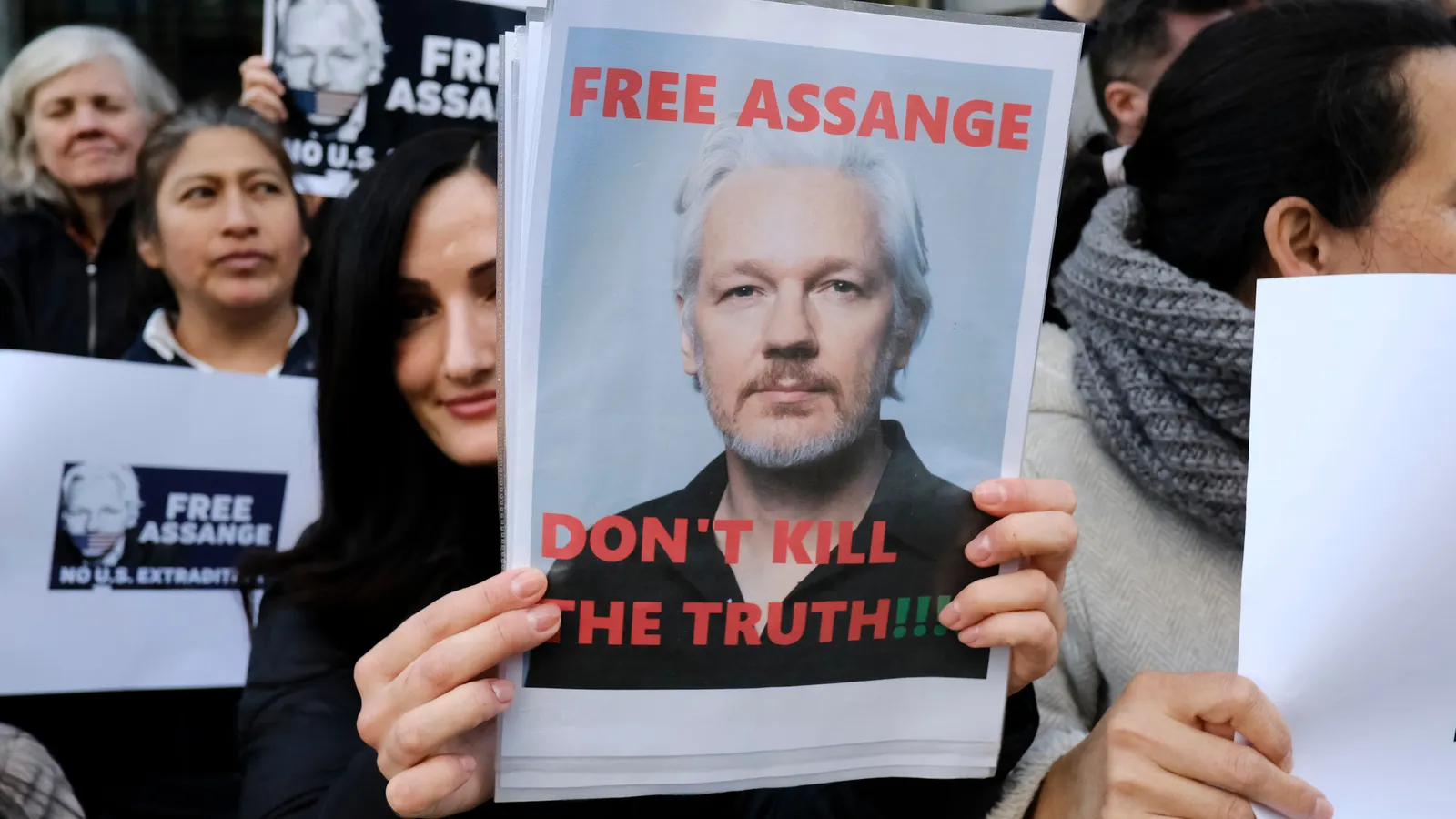Hours after Julian Assange pled guilty on Wednesday to a single charge of violating the U.S. Espionage Act, securing his freedom and bringing a 14-year, globe-spanning legal saga to a close, the WikiLeaks founder’s brother expressed gratitude to the crypto community, stating his belief that crypto donations saved Assange from a perpetually grim future.
“I have no doubt that [Julian] would not be where he is now if the AssangeDAO community hadn’t been so generous and raised so much money to contribute to his fight for freedom,” Gabriel Shipton, Assange’s half-brother, told Decrypt on Wednesday in an exclusive interview. “In short, it saved his life.”
AssangeDAO, a decentralized autonomous organization founded to aid Assange’s legal defense, raised some $53 million worth of ETH in 2022 that it pooled to purchase a symbolic NFT. The proceeds from that sale were then donated to the Wau Holland Stiftung Foundation to fund Assange’s costly legal fees and other expenses related to the publisher’s campaign for freedom.
Shipton said that the massive fundraising push from the crypto community came as a total surprise at the time—one that gave Assange the means to fight back against the U.S. government’s efforts to punish him for leaking state secrets.
“It was an out-of-the-blue shot from the crypto community that I think took the people who are pursuing Julian totally off-guard,” Shipton said. “They thought they were successful in bleeding Julian dry, even bleeding our family dry of funds.”
Shipton said those crypto funds allowed Assange not only to launch a proper legal defense, but also to amass political momentum for Assange’s release via social media ads and countless trips taken by family members (including Shipton) to lobby politicians in both Australia and the United States.
“I did so many trips, flying to Washington and advocating for Julian in Congress,” he said. “None of that would have been possible without AssangeDAO.”
As recently as today, Assange’s family received a Bitcoin donation worth roughly $500,000 to cover final travel and recovery costs Assange incurred by pleading guilty Wednesday in a remote U.S. territory in the Pacific.
The intimate connection between WikiLeaks and crypto goes all the way back to Bitcoin’s origins. In 2010, pseudonymous Bitcoin creator Satoshi Nakamoto implored WikiLeaks not to accept BTC donations, fearful the integration would attract government scrutiny to cryptocurrency.
When WikiLeaks was eventually blacklisted from accepting traditional payment methods, the nonprofit publisher of leaked documents began accepting BTC as a means to survive, providing one of the first ironclad use cases for on-chain payments.
In 2017, Assange put rumors to bed that he had died by reading out Bitcoin’s latest block hash during an online talk.
Assange’s brother Shipton thinks it's no coincidence that Assange’s trajectory, and crypto’s, have been so intertwined.
“To a lot of people, to a lot of innovators, a lot of technologists, [Julian’s freedom] represents their freedom,” Shipton said. “He used technology and encryption and the architecture of the internet to spread truthful information.”
Assange touched down in his native Australia on Wednesday evening local time, home for the first time in years.
After texting with Assange today, Shipton said he thinks his brother is feeling intense relief—now that he’s reunited with his family and sleeping in a proper bed.
Edited by Andrew Hayward
Daily Debrief Newsletter
Start every day with the top news stories right now, plus original features, a podcast, videos and more.




